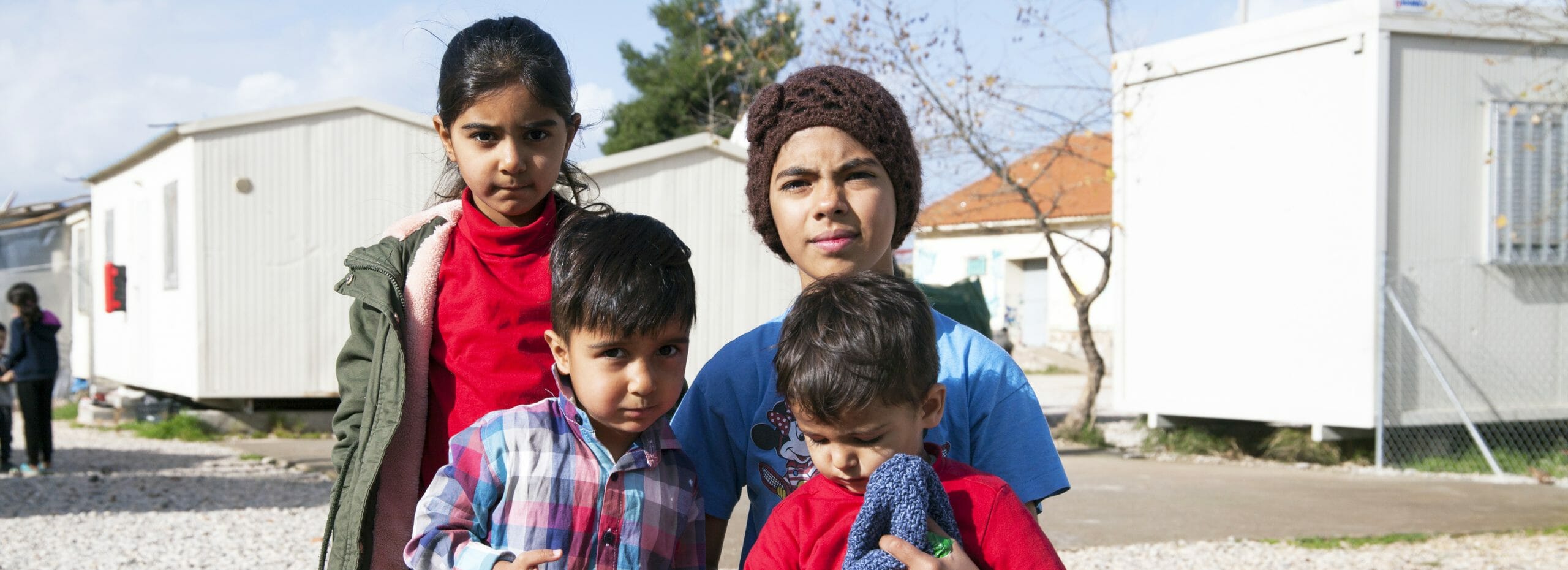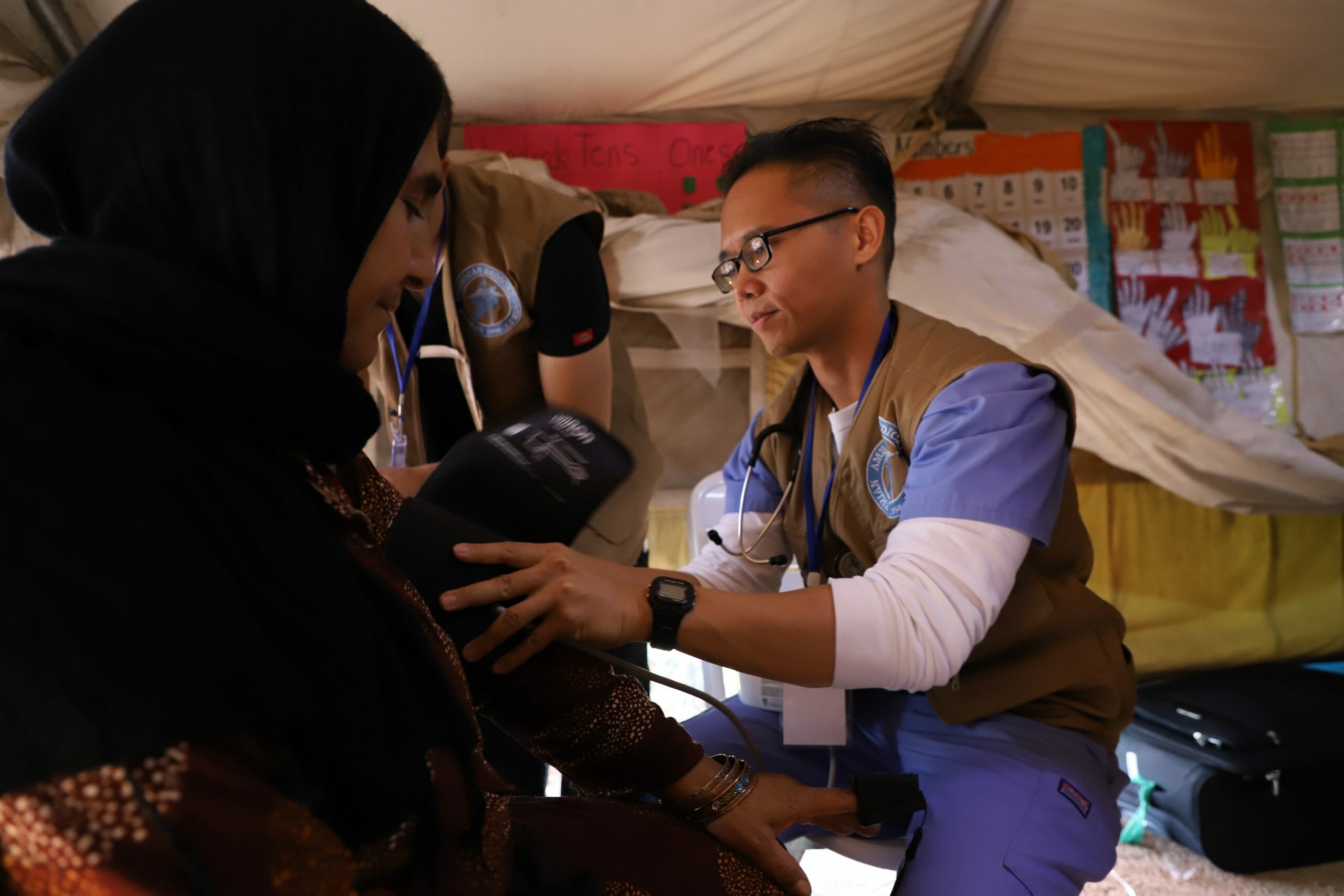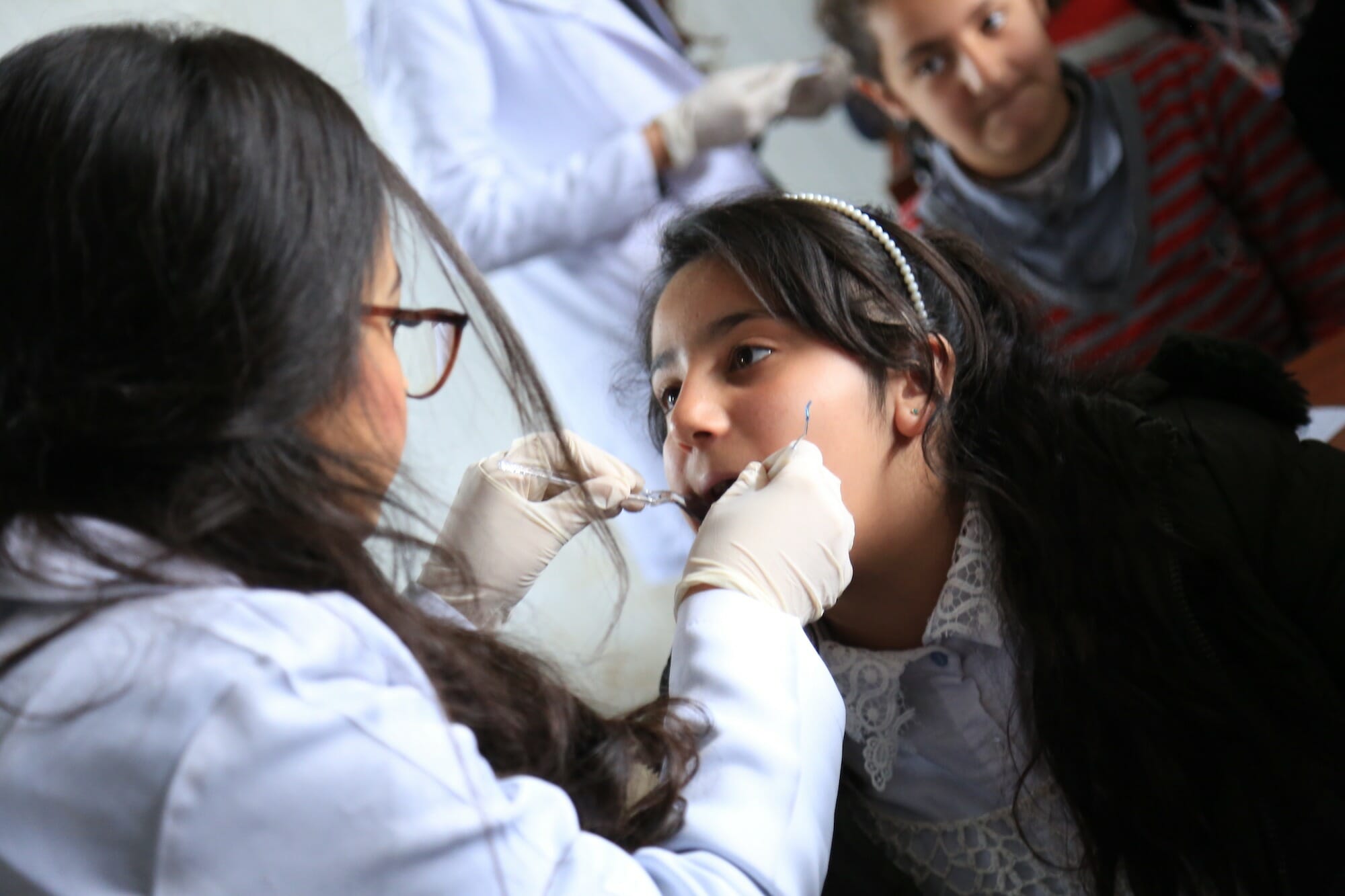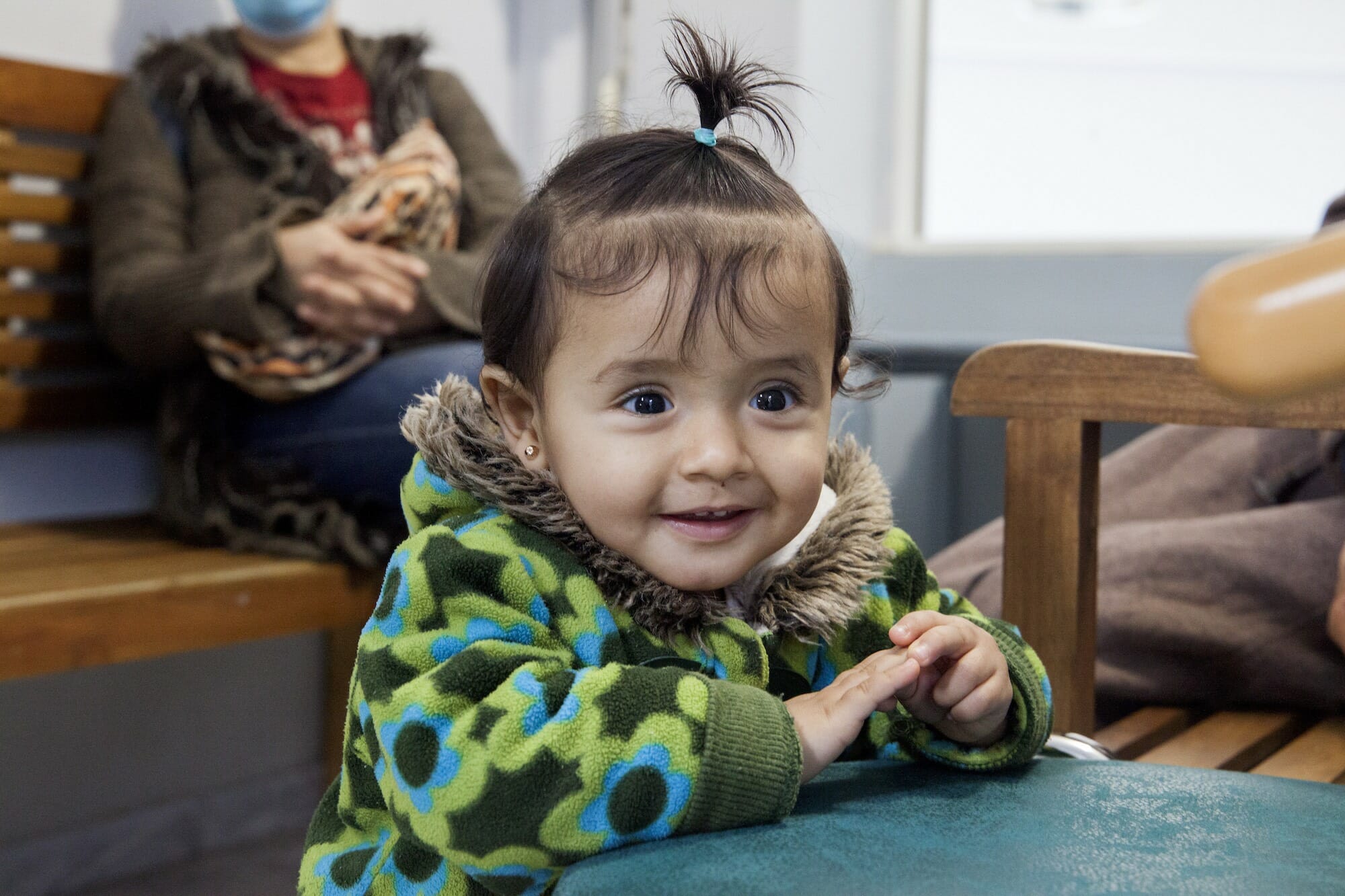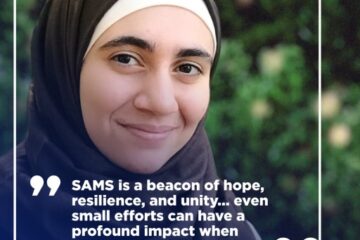June 19, 2021
The past year has brought immense challenges to every corner of the world, and this is especially true for the 80 million forcibly displaced people worldwide. The COVID-19 pandemic has exacerbated the already-poor conditions for refugees, two-thirds of whom come from just five countries – Syria, Venezuela, Afghanistan, South Sudan, and Myanmar (1). 40% of the world’s displaced people are children, and 80% live in countries affected by acute food insecurity or malnutrition (2). Refugees often face limited access to services, including education, shelter, healthcare, and livelihood opportunities. Furthermore, social and legal discrimination can cause additional barriers to accessing services, in addition to compounding the mental health impacts of living in displacement.
The COVID-19 pandemic has only served to worsen these existing issues, with refugees reporting difficulties adhering to pandemic prevention measures, lack of access to health services, growing xenophobia, and increased levels of anxiety and depression (3). SAMS has been at the forefront of the Syrian refugee crisis, providing dignified health care services to refugees in Turkey, Jordan, Lebanon, Greece, and Iraq, as well as the 6.2 million IDPs inside Syria.
TURKEY
Turkey hosts 4 million refugees, the most of any country in the world (4). 3.6 million are Syrian nationals with temporary protected status in Turkey (5). While there are seven formal camps for Syrians in southeast Turkey, the vast majority of Syrian refugees in Turkey live in urban areas (6). As of April 30th, Turkey had confirmed over 4 million cases of COVID-19 and 40,131 deaths as a result of the virus. While vaccines have been procured and vaccine rollout has begun, supply shortages have slowed the vaccination rates in refugee camps. Turkey has also relied on intermittent complete lockdowns to mitigate the effects of the pandemic. This has exacerbated existing gaps in livelihoods, protection services, education, and more. SAMS staff in Turkey have noted a need for increased services to vulnerable populations over the past year. For example, there is a need for more physical rehabilitation services for persons with disabilities. These services include physical therapy, prostheses, the provision of hearing aids, mobility assistive devices, and support for caregivers of family members with different abilities to better support and advocate for them. Ideally, in order to foster a protective environment, these services should be integrated with mental health and psychosocial support (MHPSS) and sexual and gender-based violence (SGBV) services to make sure that access to these specialized forms of protection programming are accessible to all.
JORDAN
Jordan hosts 755,238 formally registered refugees, though the actual number is likely much higher. 83% of refugees in Jordan live in urban areas, and 46.2% are children under the age of 17. 88% of refugees in Jordan are from Syria (7). Jordan has confirmed 744,844 cases of COVID-19, including 9,622 deaths (8). COVID-19 cases have been notably lower in refugee camps with a 3% test positivity rate in camps compared to a 7% test positivity rate nationally (9). Over 2.5 million vaccine doses have been administered, and refugees are increasingly among those registering to receive vaccinations. Prior to the pandemic, Syrian refugees in Jordan faced significant barriers in accessing education, healthcare, shelter, and livelihood opportunities. 21% of refugee households in Jordan are classified as food insecure, with a further 67% of households considered vulnerable to food insecurity.
The pandemic has especially exacerbated food insecurity, as the unemployment rate reached 22.6% among men and 32.8% among women. Protection concerns for Syrian refugees in Jordan abound – mental health has declined, and many refugees, especially women, report feeling unsafe in their communities (10). SAMS staff in Jordan have noticed an increased need for SGBV services as a result of the pandemic, as SGBV has increased globally due to insecurity and lockdown measures. Creative solutions are needed to implement these services remotely, but the past year has proven that it can and should be done. Similar concerns to those in Turkey for people with disabilities exist in Jordan too, and greater attention is needed to making humanitarian services more accessible to them, and to tailor health and MHPSS services to the needs of people with disabilities.
LEBANON
Lebanon hosts 1.6 million Syrian refugees, making it the country with the highest number of refugees per capita worldwide (11). 2019 and 2020 were difficult years for Lebanon, between the COVID-19 pandemic, the Beirut port explosion in August 2020, and a severe economic downturn. 50% of Syrian refugees and 33% of refugees of other nationalities are classified as food insecure, as prices have risen and food resources have become scarce (12). Lebanon has confirmed 527,508 cases of COVID-19, including 7,302 deaths. 445,352 people have been vaccinated as of April 30th, 2021 (13). Throughout the pandemic, NGOs have identified and scaled up to meet gaps in healthcare, MHPSS, WASH services, education, child protection, SGBV, shelter, and social cohesion (14). The economic downturn, exacerbated by the pandemic, has worsened conditions in nearly every sector. 90% of the patients referred to SAMS for hospital care coverage are unable to cover their share of medical fees upon discharge, and perhaps more concerningly, many patients are unable to secure admission fees required by hospitals. Testing fees, both for COVID-19 and other conditions, have also been challenging to pay for, according to SAMS beneficiaries. The pandemic and economic crises have also increased the number of Lebanese households reporting lack of access to healthcare, citing cost as the primary barrier. Secondary and tertiary care remain difficult to access, both due to cost and availability, and SAMS beneficiaries in need of cardiovascular interventions have increasingly reported skipping treatments due to cost.
GREECE
While the number of asylum seekers residing on Greece’s islands of Lesvos, Samos, Chios, Leros, and Kos has declined drastically over the past few months from over 19,000 at the beginning of 2021 (15) to 9,700 as of June 13th (16), the needs of refugees remain acute, especially in the healthcare sector. SAMS’ teams working in the Attica region report that the third wave of COVID-19 has hit hard and that most of the ICUs in the region are full. Vaccinations are not yet available in large numbers, and access for refugees is extremely limited. The spike in COVID-19 cases has led to increased access challenges, as NGOs seeking to keep their staff and beneficiaries safe, turn to remote programming modalities.
RECOMMENDATIONS
The past year has been particularly difficult for refugees around the world. Displacement already causes many challenges – from lack of basic necessities to discrimination to mental health issues. The pandemic and worsening economic conditions in many refugee-hosting countries have exacerbated and underscored these gaps while creating new challenges in their own right. Refugees need support, now more than ever. SAMS recommends that:
- Parties to conflicts worldwide cease hostilities, stemming the largest root cause of displacement
- The international community continues to support the dissemination of the COVID-19 vaccine, ensuring equitable access that includes refugees and other displaced persons
- Donor support for humanitarian programming that meets refugees’ basic needs – food, shelter, livelihoods, healthcare, and education – be increased in order to promote healthier, more stable futures for displaced communities
- Mental health support and funding for related programs be prioritized in humanitarian programming, in order to help refugees and other displaced persons cope with the stressors and trauma they are experiencing
- Refugee host countries remove barriers to refugees seeking to pursue higher education, especially in the fields of medicine and mental health
(1) https://www.unhcr.org/refugee-statistics/
(2) https://www.unhcr.org/figures-at-a-glance.html
(3) https://www.who.int/publications/i/item/9789240017924
(5) https://reliefweb.int/sites/reliefweb.int/files/resources/Turkey_Sitrep_05_may_21.pdf
(6) https://reliefweb.int/sites/reliefweb.int/files/resources/2021%2004%20Turkey%20Country%20Brief.pdf
(8) https://covid19.who.int/region/emro/country/jo
(11) https://reporting.unhcr.org/lebanon
(12) https://reliefweb.int/sites/reliefweb.int/files/resources/2021%2004%20Lebanon%20Country%20Brief.pdf
(14) https://reliefweb.int/sites/reliefweb.int/files/resources/EOY%20dashboard%20-%20Cover%20page.pdf
(15) https://reliefweb.int/report/greece/greece-aegean-islands-weekly-snapshot-04-10-january-2021
(16) https://reliefweb.int/report/greece/greece-aegean-islands-weekly-snapshot-07-13-june-2021

